Sustainable agriculture is a way of farming that’s kind to the Earth and future generations. It’s all about growing food in a way that maintains the health of the land and ecosystems. This approach focuses on long-term agricultural productivity, while minimizing harm to the environment. The core principles include soil health, water conservation, reduced reliance on chemical inputs like pesticides and fertilizers, and enhancing biodiversity.
In contrast, traditional farming often leans heavily on chemical inputs and practices that can degrade soil health over time. It’s more about getting the most out of the land in the short term, sometimes at the expense of long-term sustainability. Sustainable agriculture, on the other hand, thinks ahead. It’s about finding a balance – producing enough food to meet our needs today, while ensuring that future generations can do the same. It’s not just farming, it’s a commitment to our planet’s health and our own.
Agriculture is our wisest pursuit because it will in the end contribute most to real wealth, good morals, and happiness.
Thomas Jefferson
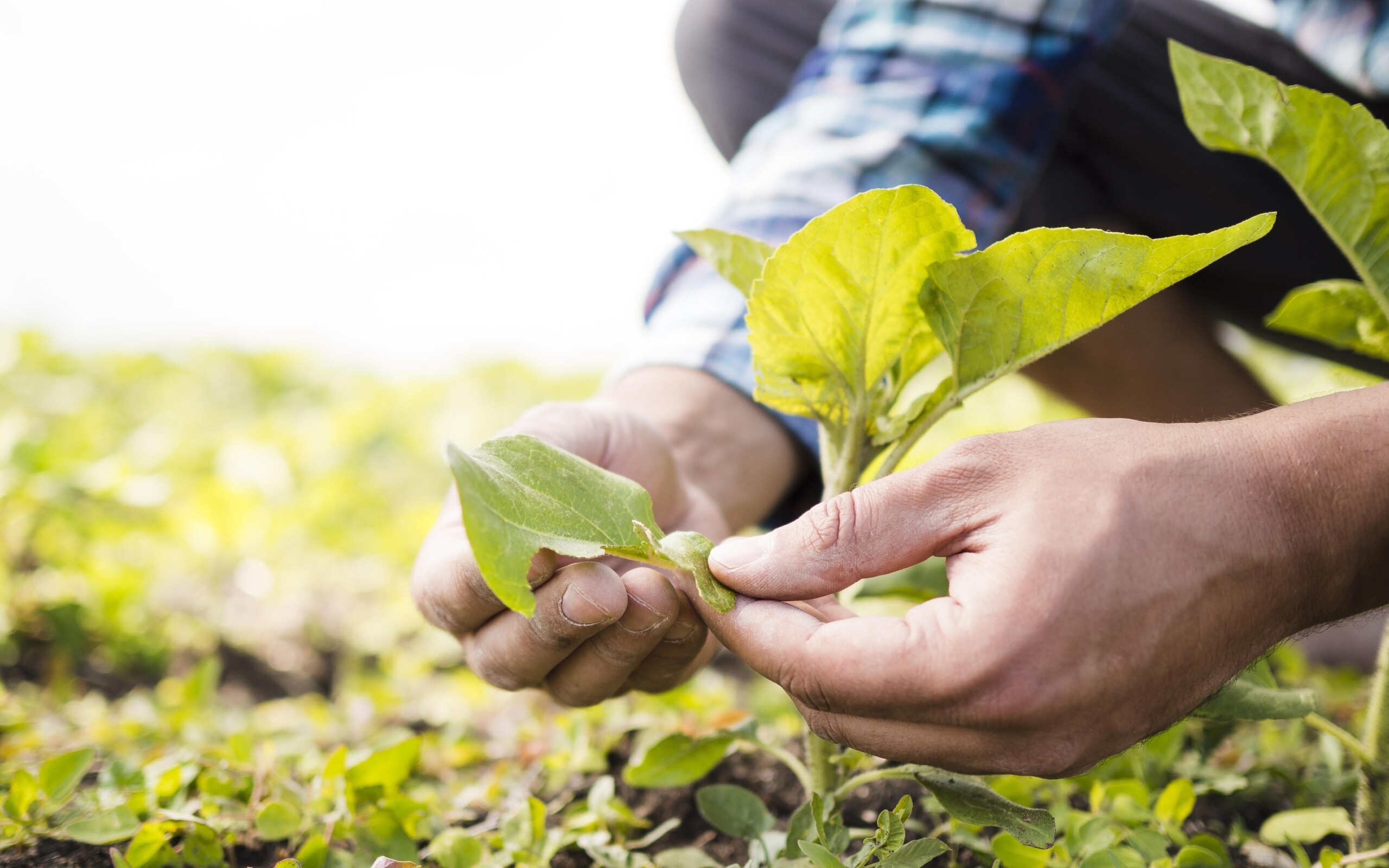
Agriculture has been the backbone of human civilization for over 10,000 years. It began with the Neolithic Revolution when humans transitioned from nomadic hunting and gathering to settled farming. This shift allowed for population growth and the development of societies. However, for much of this history, farming practices often focused on immediate yields, sometimes at the expense of long-term sustainability.
The concept of sustainable agriculture emerged more prominently in the 20th century, in response to growing concerns about environmental degradation, soil erosion, water shortages, and loss of biodiversity. The 1960s and 1970s, especially, were pivotal, marked by a growing environmental movement and the realization that intensive farming practices were unsustainable. This period saw the introduction of integrated pest management, organic farming, and agroecology, emphasizing the importance of working with natural systems rather than dominating them.
Over time, sustainable agriculture has evolved to incorporate modern technologies and scientific advancements. It now includes practices like precision farming, permaculture, and conservation agriculture, which focus on long-term soil health, efficient water use, and reduced carbon footprint. This evolution reflects a growing recognition that sustainable farming isn’t just about environmental stewardship; it’s also crucial for ensuring food security in a rapidly changing world.
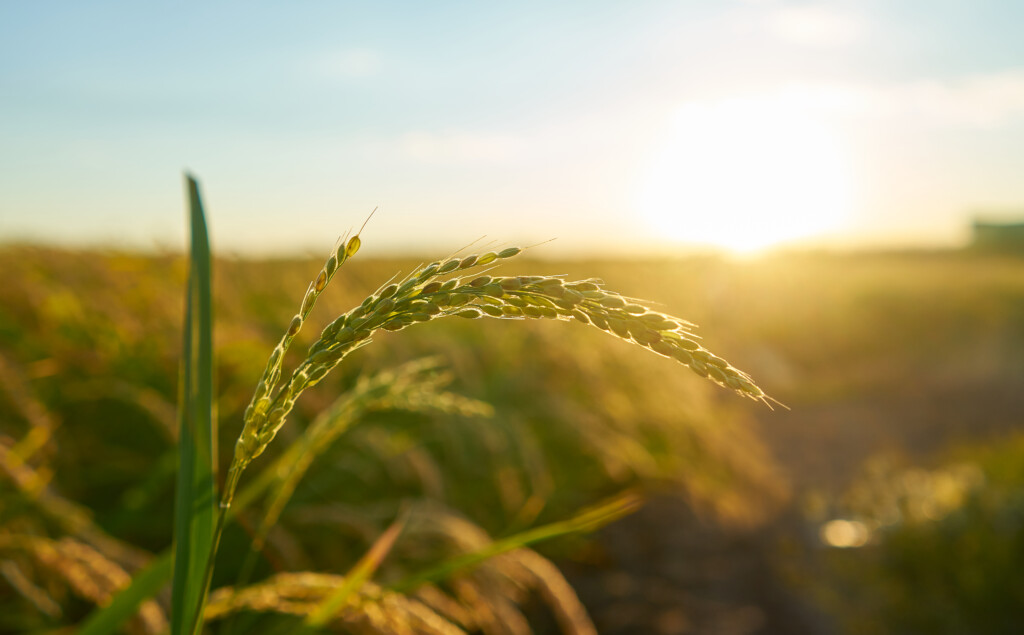
Sustainable agriculture plays a crucial role in reducing environmental impact, a critical issue in modern farming. This approach focuses on practices that minimize harm to the environment, ensuring healthier ecosystems and more resilient agricultural systems.
One of the primary ways sustainable agriculture reduces environmental impact is through minimizing pollution. Traditional farming methods often involve heavy use of synthetic fertilizers and pesticides, which can lead to water and soil pollution. In contrast, sustainable practices, such as the use of organic fertilizers and integrated pest management, significantly reduce the release of harmful chemicals into the environment. These practices not only prevent pollution but also promote biodiversity and healthier ecosystems.
Soil degradation is another major concern in conventional agriculture, often exacerbated by over-tillage, excessive use of chemical inputs, and neglect of soil health. Sustainable farming counters this through practices like crop rotation, cover cropping, and reduced tillage. Crop rotation, where different crops are planted sequentially in the same field, helps in maintaining soil fertility and structure, reducing the need for chemical fertilizers. Cover cropping, where non-cash crops are grown to cover the soil, improves soil health by preventing erosion, enhancing soil organic matter, and promoting beneficial soil organisms.
Additionally, sustainable farming often includes agroforestry and permaculture, which integrate trees and perennial plants into agricultural landscapes. This not only helps in carbon sequestration but also aids in preserving soil moisture and preventing erosion.
By embracing these environmentally friendly practices, sustainable agriculture significantly reduces its ecological footprint, paving the way for a more sustainable future in farming.
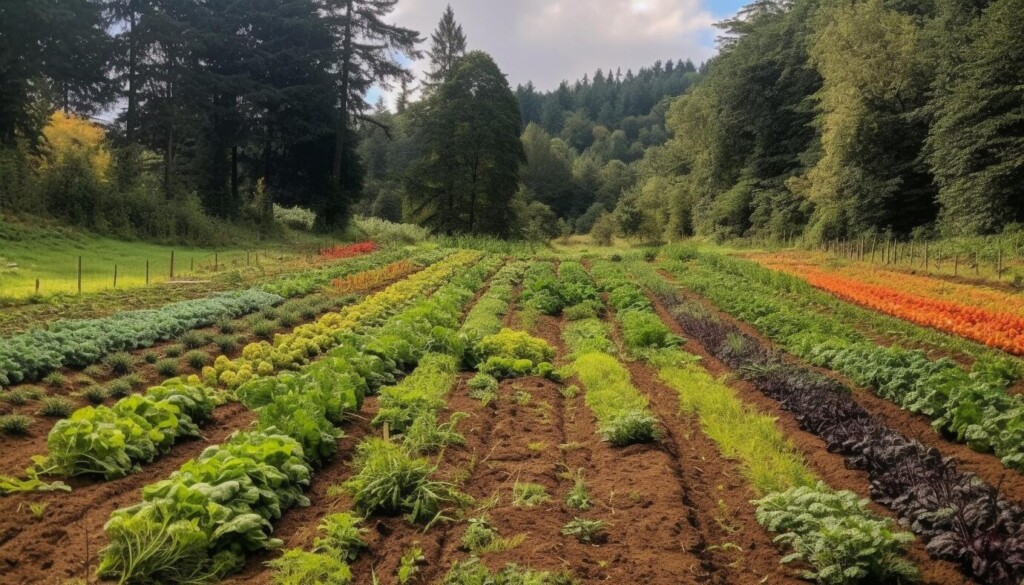
Biodiversity, the variety of life in all its forms, is crucial for agriculture. It ensures ecosystem resilience and productivity, providing a range of services from pollination to pest control. Sustainable agriculture plays a vital role in preserving biodiversity, both in and around farming areas.
In traditional farming, monocultures – the cultivation of a single crop in a given area – are common. While efficient for mass production, monocultures can lead to genetic uniformity, making crops more susceptible to pests and diseases. This often results in increased use of chemical pesticides and fertilizers, further harming biodiversity.
Sustainable farming, however, promotes diverse crop rotations and intercropping, where different crops are grown together. This variety supports a wider range of organisms, from soil microbes to insects and birds, enhancing ecosystem health. For example, planting flowering crops can attract pollinators, essential for many fruit and vegetable crops. Similarly, integrating trees and shrubs in agroforestry systems provides habitats for birds and insects, contributing to both pest control and biodiversity.
Another aspect is the preservation of heirloom and indigenous crop varieties, which are often more resilient and adapted to local conditions. By maintaining genetic diversity in crops, sustainable agriculture helps in safeguarding against future environmental changes or disease outbreaks.
Additionally, sustainable practices like organic farming avoid synthetic chemicals, benefiting soil organisms and water quality, further supporting biodiversity. By creating and maintaining habitats and using environmentally friendly practices, sustainable agriculture not only preserves biodiversity but also ensures the resilience and sustainability of farming systems themselves.
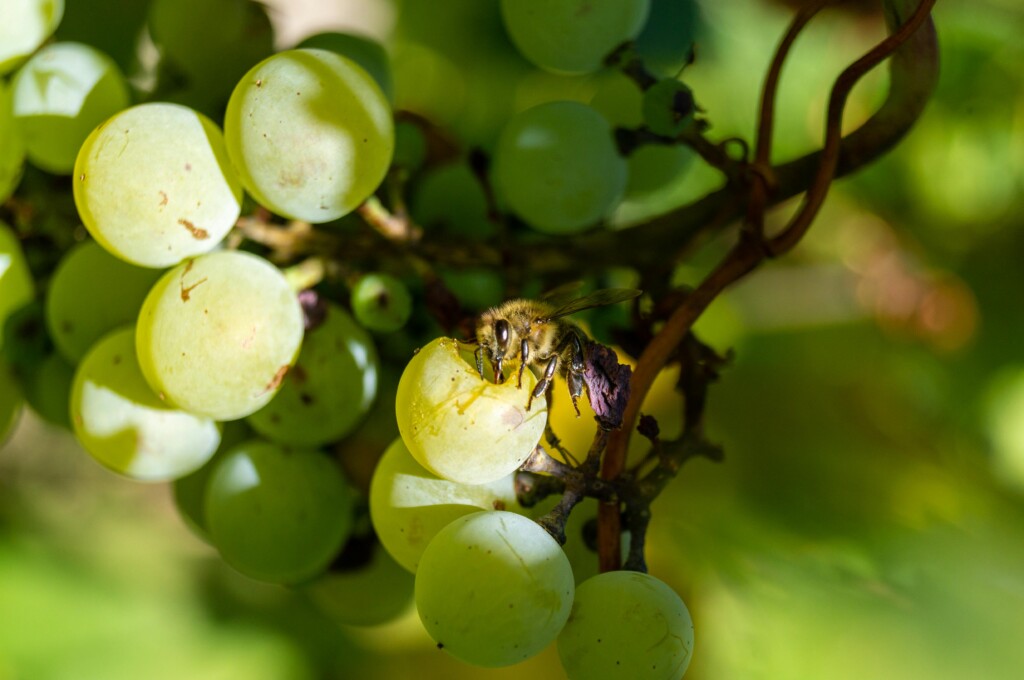
Efficient water usage is a cornerstone of sustainable agriculture, addressing one of the most critical resources in farming. With agriculture consuming about 70% of the world’s fresh water supply, sustainable practices play a key role in conserving water and ensuring its equitable distribution.
One of the primary techniques in sustainable agriculture for water conservation is drip irrigation. This method delivers water directly to the roots of plants, significantly reducing evaporation and runoff compared to traditional flood or sprinkler irrigation systems. Drip irrigation can save between 30-50% more water than conventional methods, making it a highly efficient water management practice.
Another sustainable practice is rainwater harvesting, where rainwater is collected and stored for later use in irrigation. This not only reduces dependence on external water sources but also minimizes soil erosion and runoff.
Cover cropping and mulching are additional sustainable techniques that help in conserving water. Cover crops, such as clover or ryegrass, protect the soil from direct sun, reducing moisture loss. Similarly, mulching with organic materials like straw or leaves helps in retaining soil moisture and reducing the need for frequent watering.
Through these practices, sustainable agriculture not only optimizes water usage but also contributes to preserving water quality by reducing runoff and minimizing the leaching of chemicals into water bodies. Efficient water management is thus integral to sustainable farming, ensuring resource conservation and long-term agricultural productivity.
Soil health is fundamental to agriculture. Healthy soil supports robust crop growth, maintains water quality, and even helps combat climate change by sequestering carbon. Sustainable agriculture places a strong emphasis on maintaining and enhancing soil fertility without relying heavily on chemical inputs.
One key practice is the use of organic matter like compost and green manure. These organic amendments improve soil structure, enhance nutrient availability, and boost the soil’s water-holding capacity. They also foster a diverse microbial community, essential for nutrient cycling and disease suppression.
Crop rotation is another sustainable practice vital for soil health. Rotating crops, especially with legumes (like beans and peas), can naturally replenish nitrogen levels in the soil, reducing the need for synthetic fertilizers. Legumes fix atmospheric nitrogen, making it available in the soil for subsequent crops.
Cover cropping is also instrumental in sustainable soil management. Cover crops, grown during off-seasons or alongside main crops, prevent soil erosion, improve soil organic matter, and can even help manage weeds and pests naturally.
Moreover, sustainable farming often employs reduced tillage or no-till practices. This approach minimizes soil disturbance, preserving soil structure, reducing erosion, and helping maintain carbon content in the soil.
These practices collectively contribute to a sustainable approach that maintains and enhances soil fertility, ensuring the long-term productivity and health of agricultural land.
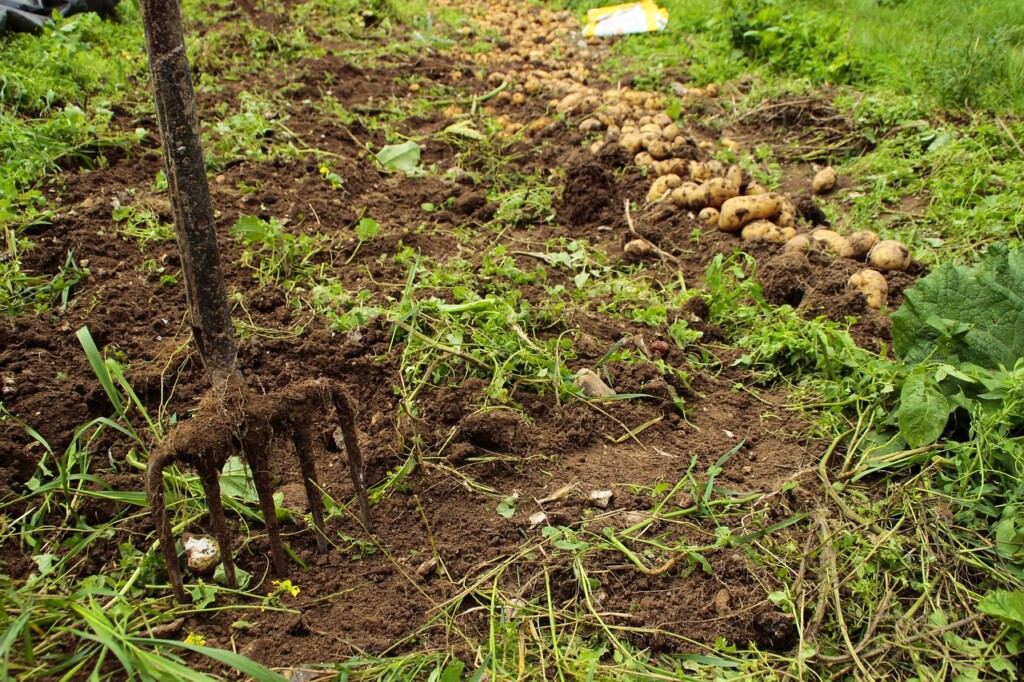
Sustainable agriculture plays a significant role in mitigating climate change. Traditional farming methods are notable contributors to greenhouse gas emissions, primarily through the use of fossil fuels, synthetic fertilizers, and methane emissions from livestock. Sustainable farming, in contrast, adopts practices that reduce these emissions and enhance the resilience of the land to climate changes.
One of the key strategies is the use of organic farming practices that avoid synthetic fertilizers and pesticides. These chemicals are energy-intensive to produce and contribute to significant CO2 emissions. By using organic methods, sustainable agriculture reduces reliance on these inputs, thereby lowering carbon footprint.
Another important aspect is carbon sequestration. Practices like agroforestry (integrating trees into agricultural land) and maintaining permanent pasture lands increase carbon storage in vegetation and soil. This is crucial in offsetting CO2 emissions.
Furthermore, sustainable farming practices such as cover cropping and reduced tillage help in maintaining soil health and structure. Healthy soils are better at storing carbon and more resilient to extreme weather events, such as droughts and floods, which are exacerbated by climate change.
By enhancing biodiversity and using resources more efficiently, sustainable agriculture not only reduces greenhouse gas emissions but also prepares agricultural systems to better withstand the impacts of climate change. This makes sustainable farming practices essential in the global effort to mitigate climate change.

Sustainable farming practices offer numerous economic benefits for farmers, balancing environmental care with financial viability. These practices can reduce costs, improve yields, and often command higher market prices, contributing to greater economic resilience for farmers.
One significant economic advantage is the reduced need for expensive chemical inputs like synthetic fertilizers and pesticides. Sustainable practices such as integrated pest management (IPM), use of organic fertilizers, and crop rotation reduce reliance on these costly inputs. For instance, IPM employs a combination of techniques like biological control, habitat manipulation, and use of resistant varieties, which can be more cost-effective than chemical treatments in the long run.
Another aspect is the potential for higher market prices for sustainably produced goods. Organic and sustainably farmed products often attract premium prices in the market. This price premium can offset the potential yield reductions typically associated with organic farming, leading to higher net incomes for farmers.
In California, sustainable farming practices have demonstrated significant economic benefits, as highlighted by the American Farmland Trust. These practices have led to better weather resilience, increased water and nutrient storage, and greater profitability for farmers. Living and functioning soils contribute to these benefits, resulting in lower input costs, higher yields, and environmental advantages like reduced runoff and carbon sequestration.
Specific case studies further illustrate these benefits. For instance, Rogers Farm near Madera improved their financial returns by $991 per acre, while Okuye Farms in Merced County saw an increase of $657 per acre. In Stanislaus County, Faith Home Orchard experienced a 459% return on investment in cover crops. Additionally, vineyards in Napa and Sonoma Counties reported significant improvements in their bottom lines, with reductions in greenhouse gas emissions and enhanced carbon sequestration. These real-world examples underscore the economic viability and environmental sustainability of adopting such farming practices.
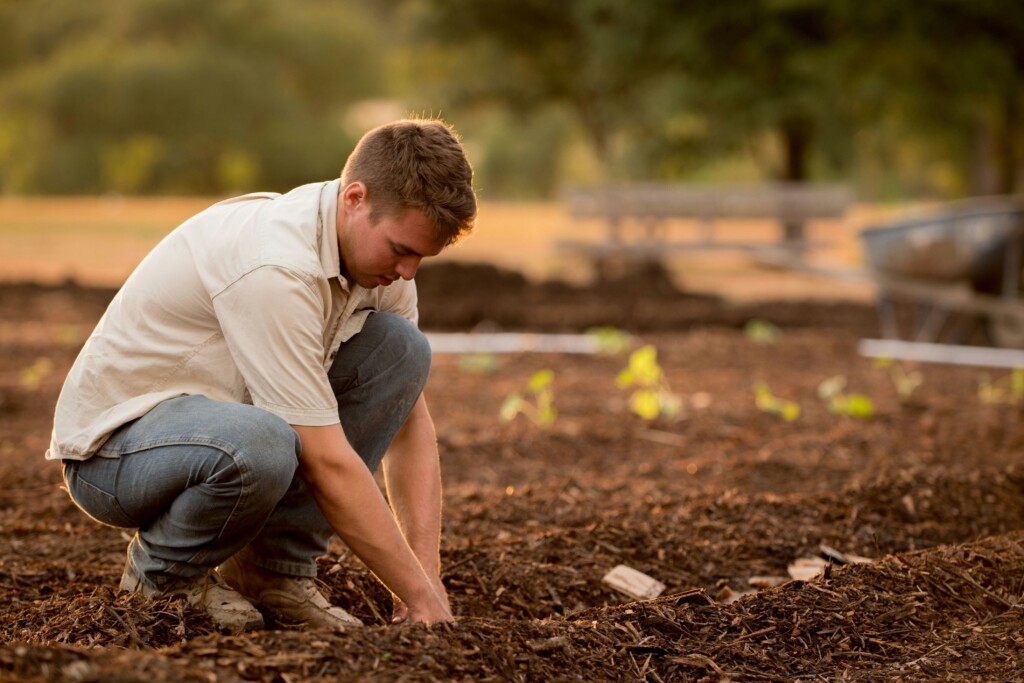
Sustainable agriculture greatly benefits both local communities and consumer health. By prioritizing environmentally friendly practices, it plays a significant role in ensuring safer, healthier food and a more robust community environment.
For local communities, sustainable farming practices often mean fewer environmental pollutants, leading to better air and water quality. This is particularly important in agricultural areas where the community’s health can be directly impacted by farming practices. Sustainable farms also tend to foster stronger community ties, as they often involve local workers and encourage community-supported agriculture (CSA) programs.
From a health perspective, one of the most significant benefits of sustainable agriculture is the reduced exposure to harmful chemicals found in pesticides and synthetic fertilizers. These chemicals can have various health risks, from acute poisoning to long-term effects like cancer or hormonal disruptions. Organic produce, a key aspect of sustainable agriculture, is grown without these harmful chemicals, offering consumers a healthier food option. Studies have shown that consuming organic food can significantly reduce pesticide exposure in children and adults.
Moreover, sustainable agriculture often prioritizes crop diversity and the cultivation of a wide range of fruits and vegetables. This diversity not only supports the ecological balance but also encourages a more varied and nutritious diet for consumers, contributing to better overall health.
Thus, sustainable agriculture’s emphasis on environmental stewardship and the avoidance of harmful chemicals offers substantial benefits for community welfare and individual health, making it a pivotal practice for a healthier society.
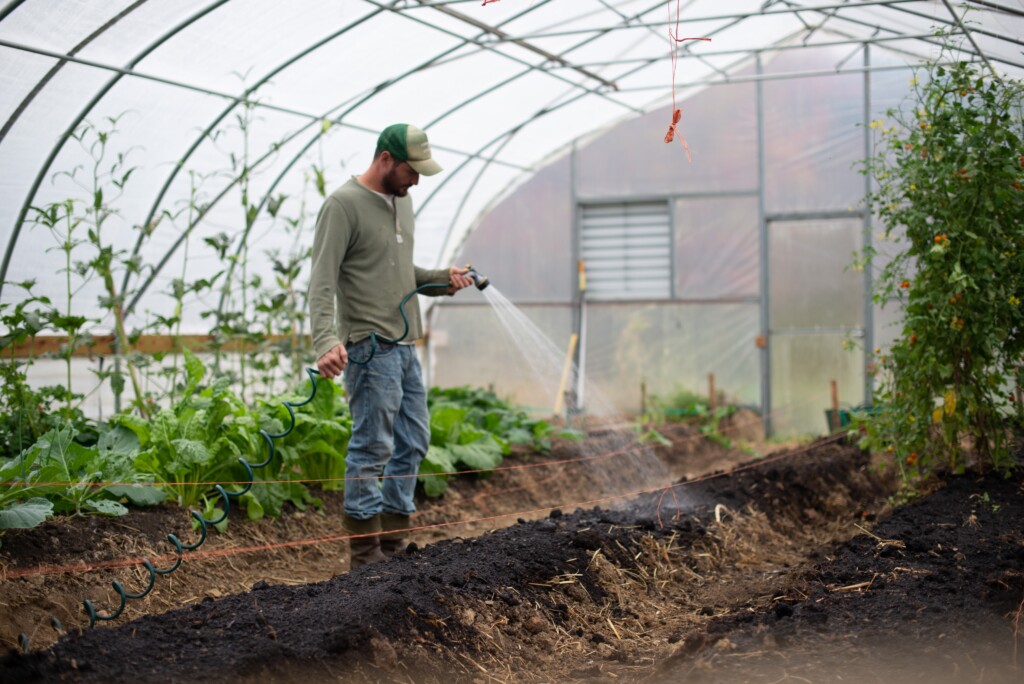
Sustainable agriculture is pivotal in ensuring food security and reliability. It addresses the challenges of providing a consistent food supply, particularly in the face of changing environmental conditions and growing global populations.
One of the key ways sustainable practices contribute to food security is through soil conservation and improved soil health. Healthy soils are more productive and resilient to stressors like drought and pests, ensuring more consistent crop yields. Practices like crop rotation, organic farming, and reduced tillage contribute to this soil health, thus supporting sustained agricultural productivity.
Furthermore, sustainable agriculture often involves diversifying crops rather than relying on monocultures. This diversification reduces the risk of crop failure due to diseases or pests and ensures a varied food supply. It also enhances nutritional diversity, which is crucial for global health.
Sustainable practices also include efficient water management and the use of renewable energy resources, which are essential in the face of climate change and resource limitations. By using resources more efficiently and responsibly, sustainable agriculture helps ensure that these resources are available for future generations.
Additionally, sustainable agriculture can play a role in mitigating climate change, which is a significant threat to global food security. By reducing greenhouse gas emissions and increasing carbon sequestration, these practices help maintain a stable climate, which is essential for consistent food production.
In summary, sustainable agriculture’s focus on resource conservation, soil health, crop diversity, and climate mitigation is crucial in ensuring a stable and reliable food supply, both now and in the future.
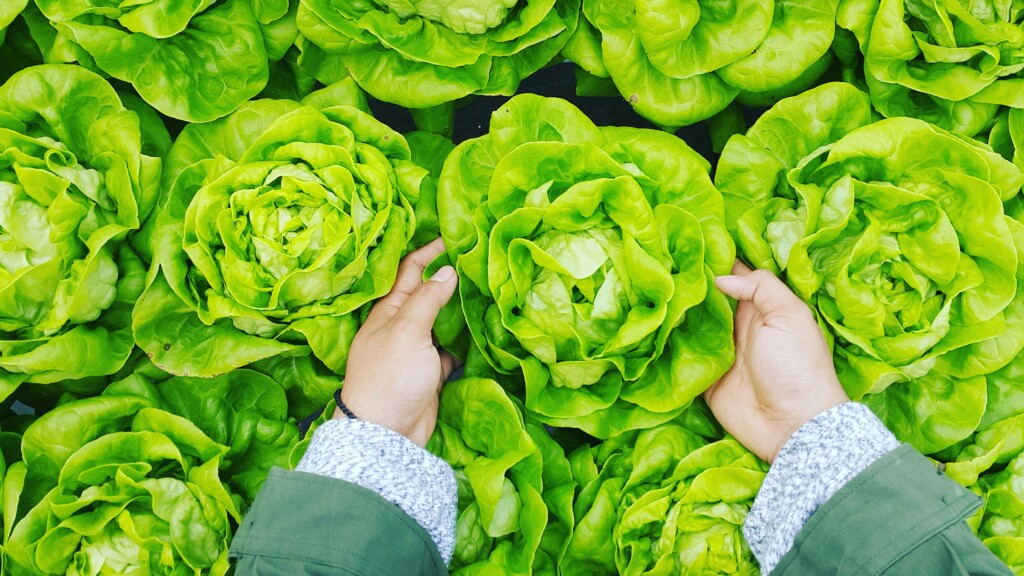
Modern technology and innovative techniques play an essential role in sustainable agriculture, improving efficiency and reducing environmental impact. Here are some examples:
Digital Sensors: Sensor technologies monitor various aspects of agriculture, from soil pH levels to micro-climate data, aiding in precise farming decisions. These sensors are key in managing resources sustainably and improving crop yields.
Irrigation Technologies: Advances in irrigation technology, like wireless remote monitoring and control systems, enable farmers to use water more efficiently. This technology optimizes water, chemical, and electrical usage, crucial for sustainable water management.
Drones: Drones have transformed agricultural practices, offering aerial imagery and carrying sensors to monitor crop conditions. Initially used for spraying chemicals, they now help assess plant health, weed presence, and overall field conditions, providing vital data for sustainable farming.
Biotechnology: Biotechnology allows crop breeders to develop plants with specific traits, such as disease resistance or drought tolerance. Techniques like CRISPR gene editing are used to improve crop yield, architectural traits, and disease tolerance. This innovation is crucial for sustainable agriculture, as it helps crops adapt to changing environmental conditions.
Fleet Management: Advanced telemetry systems and GPS have revolutionized fleet management in agriculture. These systems provide precise information about equipment usage, optimizing the efficiency of farm machinery and contributing to sustainable resource management.
These technologies and innovations illustrate the dynamic evolution of sustainable agriculture, integrating modern tools to create more efficient, environmentally friendly, and productive farming practices.

Global policies and initiatives play a critical role in supporting sustainable agriculture, essential for achieving broader sustainability goals. The Food and Agriculture Organization (FAO) actively develops gender-responsive and nutrition-sensitive policies, investment plans, programs, and governance mechanisms that aid sustainable practices in agriculture, forestry, and fisheries. This includes assisting producers in adopting innovative practices and technologies to increase productivity sustainably.
Countries are encouraged to adopt Sustainable Food and Agriculture (SFA) approaches that promote resource efficiency, conserve natural resources and biodiversity, and foster resilient livelihoods. These approaches align with the Sustainable Development Goals, especially SDG 2, which focuses on ending hunger and promoting sustainable agriculture. Governments and regional entities are urged to establish evidence-based policies and programs that promote productive and sustainable agriculture in an integrated and participatory manner, addressing challenges like resource degradation, biodiversity protection, and climate change resilience.
Efforts also focus on increasing regional and national institutional capacities and partnerships for scaling up sustainable agriculture under climate change. This includes strengthening smallholders’ capacities, supporting the adoption of appropriate practices and technologies, fostering innovation, and evaluating and monitoring impacts. Furthermore, promoting the key principles of SFA through awareness-raising, dialogues, and building multi-stakeholder platforms is crucial at both regional and country levels.
Additionally, there is a significant push to mobilize domestic and international finance to facilitate the transition to sustainable agriculture. This includes targeting public funds to provide essential public goods like knowledge and infrastructure and unlocking the potential of the private sector through de-risking and technical cooperation. These policies and initiatives collectively contribute to a global effort towards promoting sustainable farming, ensuring environmental stewardship, and securing food for future generations.
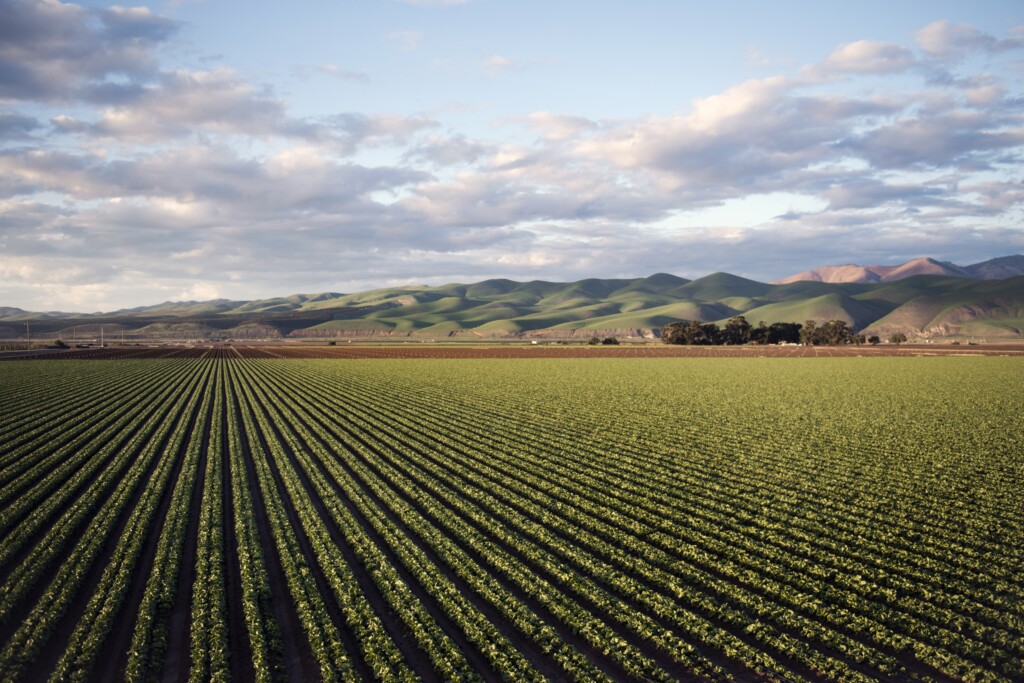
As we look ahead, the narrative of sustainable agriculture intertwines with the future of food security. The burgeoning global population and climate change challenges make sustainable practices not just beneficial, but essential. Predictions point towards a more eco-conscious approach in farming, with precision agriculture, water-efficient technologies, and a shift towards organic, locally sourced produce becoming more prevalent.
Sustainable agriculture is no longer a choice but a necessity for our future. It represents a harmonious balance between meeting our nutritional needs and preserving our planet. This calls for action from everyone: readers, policymakers, and stakeholders alike must embrace and advocate for sustainable practices in agriculture. Together, we can shape a future where food security is achieved without compromising the health of our planet.
Stay a while and read more posts like this
Let’s devote a few minutes to envision our world in 2100. It’s quite a thought experiment, given the dramatic transformations our planet has experienced in...
With climate change looming large, the world is embarking on a quest for solutions to heal our ailing planet. Solar geoengineering emerges as a burgeoning field,...
Taking on parenthood comes with unique choices that factor in more than just our family’s immediate needs. For modern parents, who are not just guardians of...